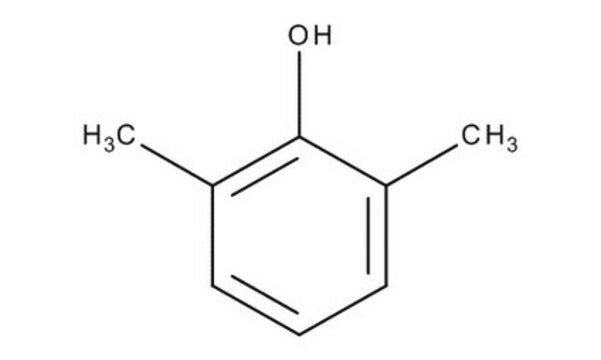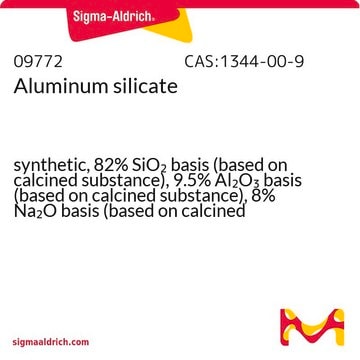D174904
2,6-Dimethylphenol
≥99.5%
Synonym(s):
2-Hydroxy-m-xylene, vic.-m-Xylenol
About This Item
Recommended Products
Assay
≥99.5%
form
crystals
autoignition temp.
1110 °F
bp
203 °C (lit.)
mp
43-45 °C (lit.)
SMILES string
Cc1cccc(C)c1O
InChI
1S/C8H10O/c1-6-4-3-5-7(2)8(6)9/h3-5,9H,1-2H3
InChI key
NXXYKOUNUYWIHA-UHFFFAOYSA-N
Gene Information
human ... GABRA1(2554)
Looking for similar products? Visit Product Comparison Guide
Related Categories
Signal Word
Danger
Hazard Statements
Precautionary Statements
Hazard Classifications
Acute Tox. 3 Dermal - Acute Tox. 3 Oral - Aquatic Chronic 2 - Eye Dam. 1 - Skin Corr. 1B - STOT SE 3
Target Organs
Respiratory system
Storage Class Code
6.1A - Combustible acute toxic Cat. 1 and 2 / very toxic hazardous materials
WGK
WGK 3
Flash Point(F)
186.8 °F - closed cup
Flash Point(C)
86 °C - closed cup
Personal Protective Equipment
Certificates of Analysis (COA)
Search for Certificates of Analysis (COA) by entering the products Lot/Batch Number. Lot and Batch Numbers can be found on a product’s label following the words ‘Lot’ or ‘Batch’.
Already Own This Product?
Find documentation for the products that you have recently purchased in the Document Library.
Customers Also Viewed
Our team of scientists has experience in all areas of research including Life Science, Material Science, Chemical Synthesis, Chromatography, Analytical and many others.
Contact Technical Service
















